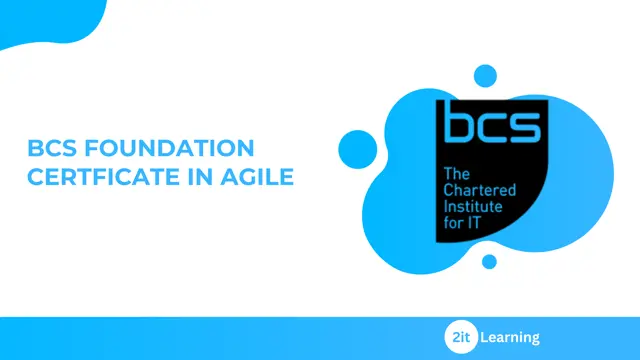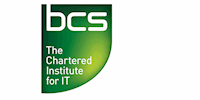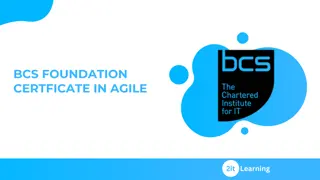
BCS Foundation Certificate in Agile
Includes exam, tutor support and career support
2it Learning Ltd
Summary
- Reed Courses Certificate of Completion - Free
- Exam(s) / assessment(s) is included in price
- Tutor is available to students
Add to basket or enquire
Overview
Gain a solid understanding of the concepts and values of Agile by challenging conventional methods and thinking.
This Agile certificate will answer the questions:
What is Agile? What is Agile working?
And how can I embed Agile into my organisation?
This certification will equip candidates with knowledge that can be applied in a variety of situations and promotes effective working within any Agile team.
Certification
Agile Foundation
Certificates
Reed Courses Certificate of Completion
Digital certificate - Included
Will be downloadable when all lectures have been completed.
Curriculum
-
Introduction 00:39
-
Why Agile? 10:45
-
Individuals and Their Interactions Over Processes and Tools 11:20
-
Working Software Over Comprehensive Documentation 12:14
-
Customer Collaboration Over Contract Negotiation 12:45
-
Responding To Change Over Following a Plan 18:01
-
The Agile Mindset 32:23
-
Roles in Agile Teams 06:07
-
Common Agile Practices 1:48:02
-
Agile in Practice 38:03
-
Practice Exam 28:00
Course media
Description
The BCS Foundation Certificate in Agile is relevant to anyone requiring an understanding
of the use of Agile or looking to adopt it. This includes, but is not limited to, organisational leaders and managers, marketing executives and managers, and/or all professionals working in an Agile environment, including software sesters, developers, business analysts, UX designers, project management office (PMO), project support and project coordinators.
What will I learn?
You’ll gain a broad understanding of agile including:
Why Agile?
The factors that drive Agile adoption
The Agile Manifesto in detail
The Agile mindset
Roles in Agile teams
Common Agile practices
The practical application of Agile
The exam:
One hour ‘closed book’ with 40 multiple choice questions
Pass mark is 65% (26/40)
Who is this course for?
Business and IT professionals who are interested in Agile practices and the Agile methodology.
Anyone requiring an understanding of Agile as well as organisational leaders and managers wanting to understand the value of Agile practices.
Those who work in an Agile environment, including software testers, developers, product owners, business analysts and Scrum masters.
Requirements
There are no entry requirements for this certification.
Questions and answers
Currently there are no Q&As for this course. Be the first to ask a question.
Reviews
Currently there are no reviews for this course. Be the first to leave a review.
Legal information
This course is advertised on Reed.co.uk by the Course Provider, whose terms and conditions apply. Purchases are made directly from the Course Provider, and as such, content and materials are supplied by the Course Provider directly. Reed is acting as agent and not reseller in relation to this course. Reed's only responsibility is to facilitate your payment for the course. It is your responsibility to review and agree to the Course Provider's terms and conditions and satisfy yourself as to the suitability of the course you intend to purchase. Reed will not have any responsibility for the content of the course and/or associated materials.



